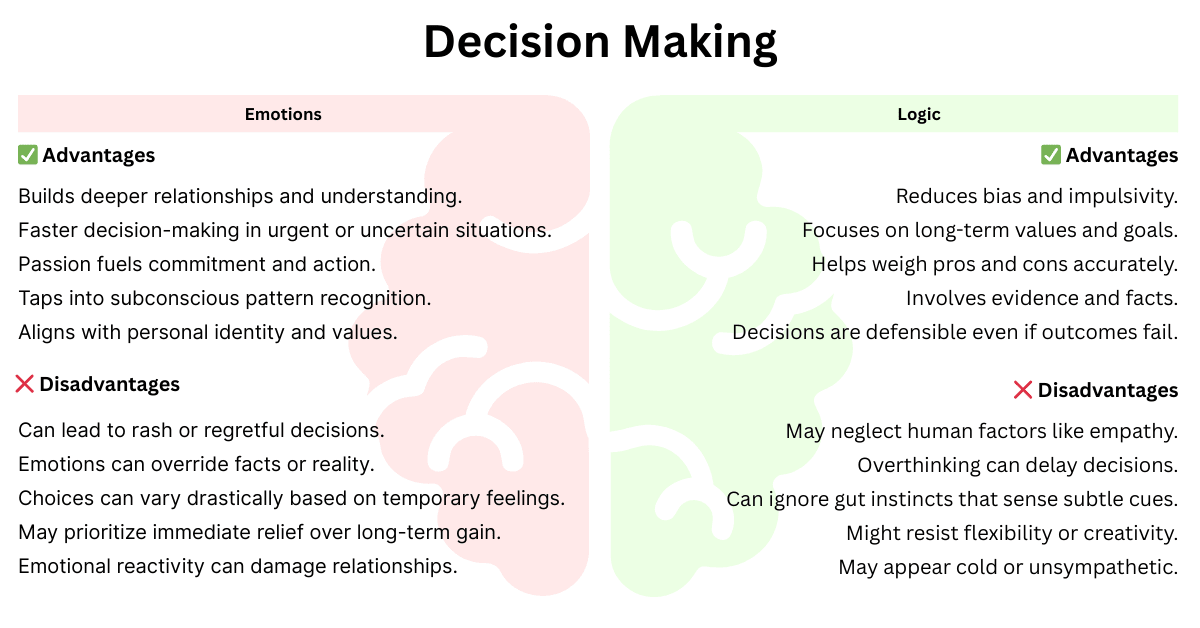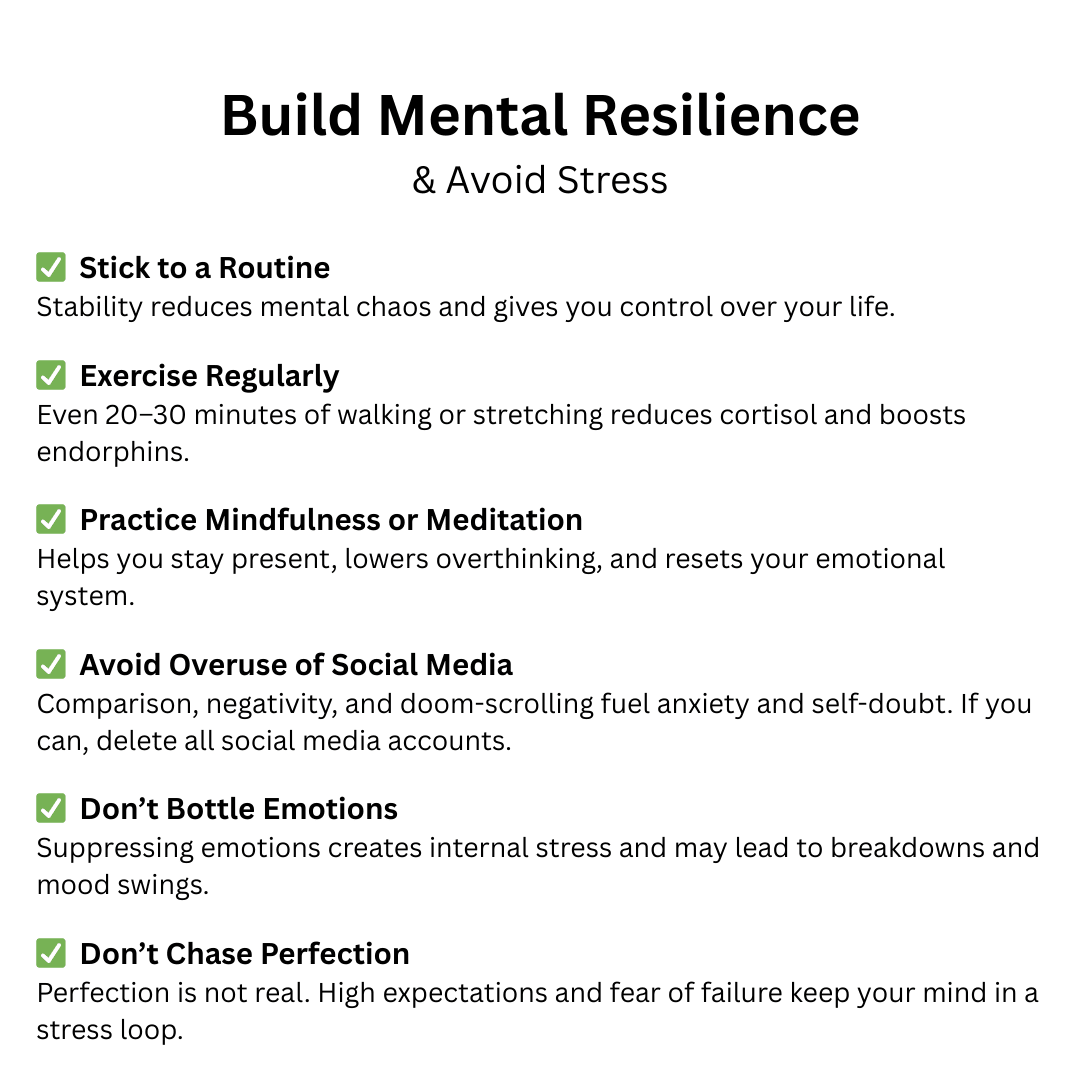You can plan every detail of your life, but life has its own plans.
Life rarely goes according to plan. No matter how carefully we try to control our future, unforeseen challenges; both beautiful and brutal have a way of showing up uninvited.
Whether it’s a sudden job loss, a health scare, a failed relationship, or even a global pandemic, uncertainty is an unavoidable part of the human experience. But here’s the truth: uncertainty doesn’t have to be the enemy.
In fact, some of the most valuable life lessons come not from what we expect, but from what we never saw coming.
Let us explore how to prepare ourselves for life’s unpredictability without becoming obsessive overthinkers.
Life Lessons: What Should We Know?
We spend so much energy trying to control things—outcomes, people, timing—that we forget how little power we actually have over the external world. The weather changes. People change. Plans fall apart. That’s life.
What you DO have control over is your response. Your effort. Your mindset. When you shift your focus from controlling circumstances to managing your inner world, you take back your power.
So, how do we deal with this ever-present uncertainty?
Uncertainty Is Inevitable
We often grow up believing that if we follow the rules, do everything we’re told, be nice to everyone, and plan ahead, life will go smoothly. But reality is far different. Real life doesn’t work that way. Unexpected events are not exceptions but the norm.
No matter how much you plan, the unexpected always finds a way. That’s why it is said:
“Expect the best, prepare for the worst, and live with what comes.”
This doesn’t mean you should just resign and hope for the best, but you need to acknowledge that even though you have done everything right, something can still go wrong. Life is fluid, like a river—it twists, turns, and flows in ways we can’t always predict.
When you embrace the unknown as part of the adventure, you begin to free yourself from the burden of needing total control.
Action Steps:
- Mindfulness Practice: Engage in daily mindfulness or meditation to become more comfortable with the present moment. This helps in reducing anxiety about the future.
- Flexible Planning: While setting goals, remain open to adjusting them as circumstances change. Flexibility can lead to unexpected opportunities. Having rigid plans leads to last-minute changes that could further lead to failure.
- Journaling: Write about your fears and uncertainties. This can provide clarity and reduce the power these thoughts hold over you. Journaling also helps to clear the mind of all the unnecessary junk.
“You can’t control the waves, but you can learn how to surf.”
Failure is not a dead end – It’s a detour
One of the biggest fears that comes with uncertainty is the fear of failure. What if I make the wrong choice? What if things fall apart? What if I lose everything?
But here’s what failure actually is: feedback. It’s information. It’s not a label or a life sentence. Every mistake, every misstep, every rejection is a chance to gain clarity about what doesn’t work—and what might.
The key is to normalize failure in your mind. When you stop seeing it as a threat and start seeing it as a teacher, the fear surrounding uncertainty begins to dissolve.
Action Steps:
- Reframe Failure: Instead of viewing failure as a negative outcome, see it as a learning opportunity that brings you closer to success.
- Analyze Mistakes: After a setback, assess what went wrong and how you can improve. This proactive approach turns failure into growth.
- Celebrate Effort: Acknowledge the courage it took to try something new, regardless of the outcome.
“Don’t be afraid to fail. Be afraid of not learning anything when you do.”
Make Decisions Using Logic, Not Emotions
Emotions are valid. They’re a natural response to what we’re going through. But when it comes to decision-making, emotions can cloud our judgment. They exaggerate the risks, amplify the fear, and often steer us away from logic.
Instead of making choices based on temporary emotional states, learn to make decisions based on your core values and long-term vision.
Ask yourself:
- Does this align with the person I want to become?
- Will this matter in 5 years?
- Is this decision helping me grow or just keeping me comfortable?
By grounding your decisions in principles, not moods, you ensure that even in uncertainty, you stay consistent with who you truly are.
Action Steps:
- Identify Core Values: List your top five values and refer to them when making significant decisions.
- Pause Before Reacting: When faced with a decision, take a moment to breathe and reflect, allowing emotions to settle.
- Seek Counsel: Discuss important choices with trusted individuals who understand your values and can offer objective perspectives.

“Emotions are signals, not commands.”
Don’t Overthink the Unknown
Overthinking is one of the biggest hurdles for growth-oriented people. Thinking helps you plan and make calculated decisions. Overthinking wastes your time and mental energy.
Preparation means:
- Having savings for emergencies
- Maintaining your physical and mental health
- Building a support system of friends and mentors
- Being adaptable in your mindset and skillset
Overthinking, on the other hand, means:
- Playing out worst-case scenarios repeatedly
- Creating problems that don’t exist
- Procrastinating in the name of caution
To stop overthinking, develop a practice of taking action. Even small steps, taken consistently, create momentum and reduce mental clutter.
Action Steps:
- Set Achievable Goals: Break down larger tasks into manageable steps to prevent feeling overwhelmed. Avoid unrealistic goals—it’s like attempting Everest without ever hiking a hill.
- Limit Information Intake: Avoid excessive consumption of news or social media that may fuel anxiety. Information overload causes you to overthink because you get a lot of data and try to fit every variable into the plan.
- Practice Decision-Making: Make small decisions quickly to build confidence and reduce the habit of overanalyzing.
“Worrying is like paying interest on a loan you didn’t even take.”
Find Balance: Learn to Rest, Not Quit
Uncertainty and stress often go hand in hand. When things don’t go our way, we tend to burn out trying to fix everything at once. But exhaustion leads to poor choices and emotional outbursts.
Balance isn’t about always being calm or always in control. It’s about knowing when to push and when to pause. It’s about recognizing the signs of burnout and giving yourself permission to rest.
Create routines that center you:
- Journaling your thoughts before bed
- Going for walks without your phone
- Practicing mindfulness or deep breathing
- Doing one thing each day that makes you feel alive
Balance isn’t found. It’s created—intentionally, consistently, and gently. If you feel like a task or project is weighing heavily on your mind (and it occasionally does), don’t say “I quit”, say “I’ll rest for a bit”. Let it go out of your mind for now.
Action Steps:
- Establish Boundaries: Set clear limits on work hours and personal time to prevent burnout.
- Schedule Downtime: Allocate time for relaxation and activities that rejuvenate you.
- Listen to Your Body: Pay attention to signs of fatigue and take breaks as needed to maintain overall well-being.
“You don’t find peace by avoiding life; you find peace by living it fully.”
Focus on the process, not on the results
We suffer the most when we obsess over results. When we attach our happiness to a specific outcome: a job, a person, a goal; we set ourselves up for disappointment if things go sideways.
Instead, learn to love the process. Trust the progress. Value the effort.
If your goal is to grow, then even a failure is a win. If your mission is to stay aligned with your values, then even uncertainty becomes a tool for refinement.
Action Steps:
- Set Process-Oriented Goals: Focus on actions within your control rather than external results.
- Celebrate Small Wins: Acknowledge and appreciate progress, no matter how minor it may seem.
- Reflect Regularly: Assess what you’ve learned and how you’ve grown, reinforcing the value of the journey itself.
“Let go of how it should be. Embrace what it could become.”
Don’t Let Stress Dictate Your Story
Stress is a response. It’s your brain’s way of saying, “Hey, pay attention!” But it’s not a roadmap, and it shouldn’t be your narrator.
To keep stress in check:
- Limit your consumption of news and negativity
- Stay physically active
- Get enough sleep and stay hydrated
- Talk things out with someone who can offer perspective

Most importantly, rewrite the narrative in your head. Instead of saying, “This is too much,” say, “I’ll take it one step at a time.” Instead of saying, “I can’t handle this,” say, “I’ve handled hard things before. I’ll get through this too.”
Action Steps:
- Develop Coping Mechanisms: Engage in activities like exercise, meditation, or hobbies that reduce stress.
- Seek Support: Don’t hesitate to reach out to friends, family, or professionals when feeling overwhelmed.
- Practice Positive Self-Talk: Replace negative thoughts with affirmations that empower and encourage resilience.
Final Thoughts: Choose Growth, Always
Life will surprise you. It will shake you, stretch you, and sometimes shatter your plans. But it’s also the very thing that shapes your character.
Prepare, but don’t obsess. Plan, but stay flexible. Feel, but don’t be ruled by feelings. The more you treat uncertainty as a teacher, not a threat, the more resilient you become.
Don’t fear the detours. Sometimes they lead you exactly where you’re meant to be.
Action Steps:
- Embrace Change: View unexpected events as opportunities for growth and learning.
- Stay Curious: Maintain an open mind and a willingness to explore new paths.
- Commit to Personal Development: Invest time and energy into activities that foster growth and self-improvement.
Life isn’t about waiting for the chaos to stop, it’s about learning how to find your calm within the chaos. Growth happens not when everything is perfect, but when everything is uncertain and you show up anyway. When you’re tired, but keep going. When you don’t know the answer but choose to stay curious. When the path disappears and you keep walking, trusting that your feet will find ground.
Uncertainty doesn’t mean you’re lost. It means you’re alive. It means you’re evolving. It means the story isn’t over yet.
So choose growth.
Choose presence.
Choose the next right step, even if it’s a small one.
Because in the end, it’s not about having all the answers, it’s about learning how to live gracefully without them.

